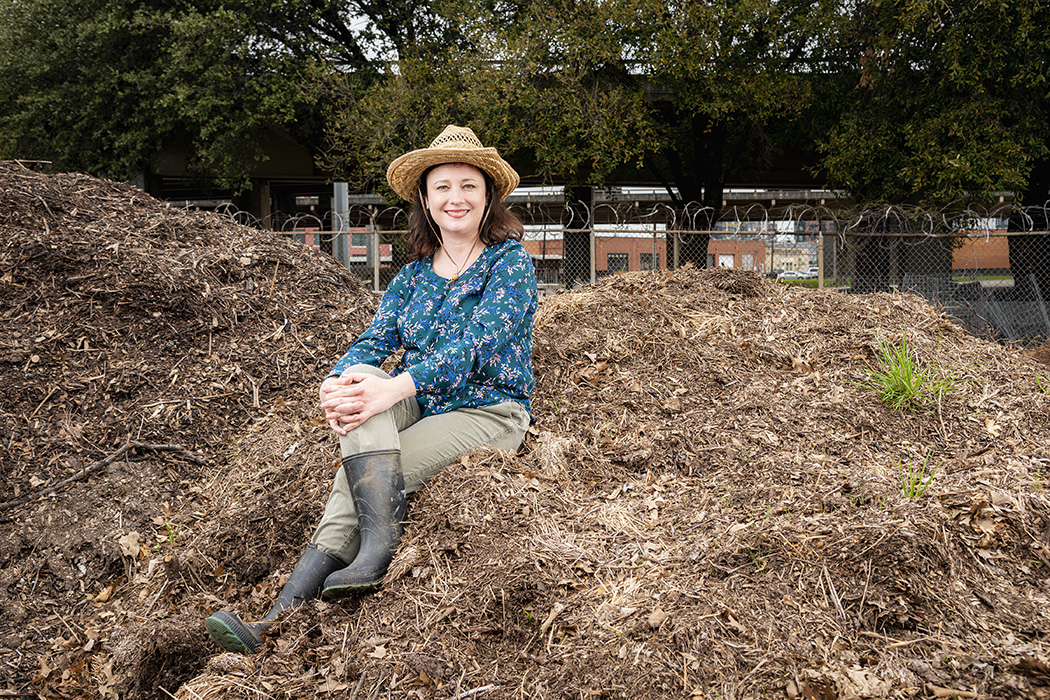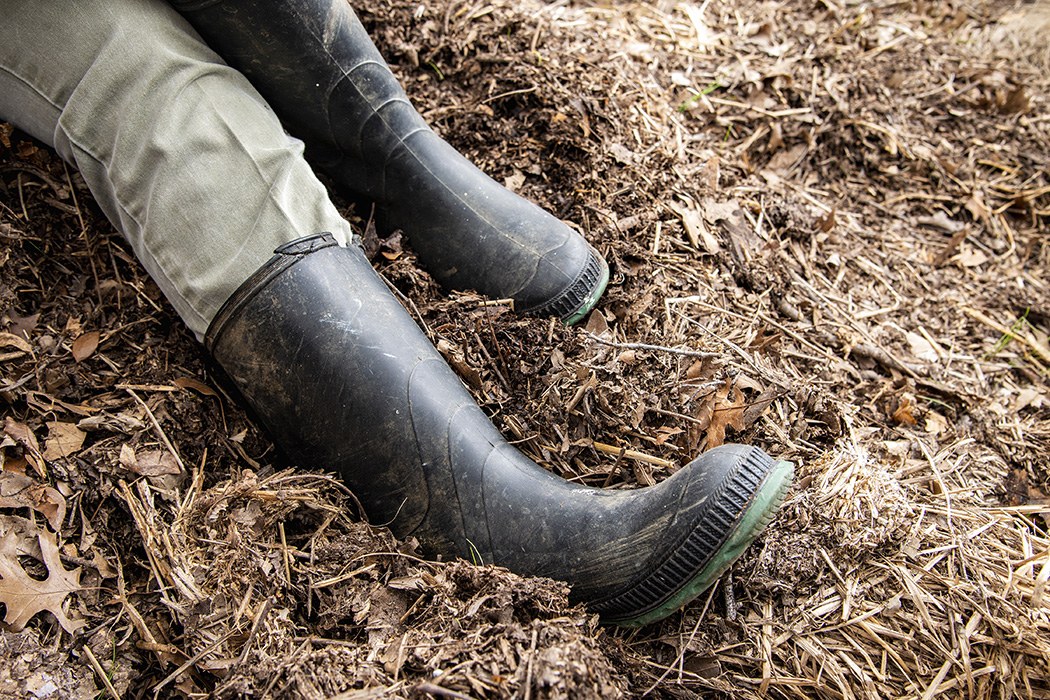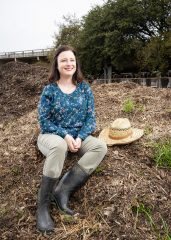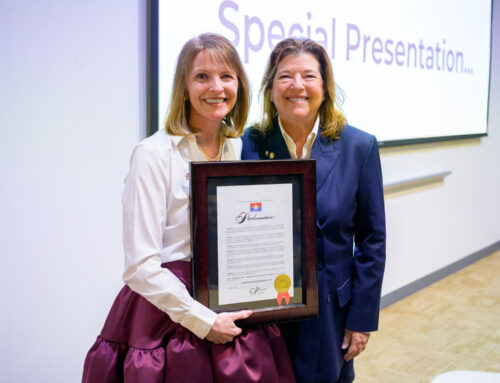
Photography by Danny Fulgencio.
It’s not unusual for Lakewood neighbor Lauren Clarke to receive text messages from strangers about nail clippings, hair and dryer lint. As the owner of Turn, a monthly subscription service that collects compost, customers want to know what organic materials can be recycled. “That’s always fun and unexpected,” Clarke says. “The truth is, they are all compostable.” Fed up with food waste filling our landfills, Clarke started composting at her home 10 years ago. She joined the U.S. Composting Council and began researching how other cities minimize their environmental footprint. On Earth Day in 2018, she launched Turn, which picks up neighbors’ organic waste and takes it to local farms. Since starting in Lakewood, Turn has expanded to 17 ZIP codes and added 12 drop-off locations throughout the Dallas-Fort Worth area. The business has also partnered with Khao Noodle Shop and other establishments that want to reduce waste. “I want everyone to feel like we’re part of a team working together for something good,” she says. “We try to make [customers] proud of what they’re doing.”

Photography by Danny Fulgencio.
Have you always been interested in the environment?
I was very close to my grandmother, and she always composted. It had an impact on my life. When I lived in New York, I tried to grow things on the balcony. I’ve always loved plants and gardens. I just never had the time or space to delve into it. When I met my husband and had a house, I was so excited about starting a garden. I have a zero-waste yard and a zero-waste kitchen. I don’t throw away anything. That’s what Turn is about — reusing everything.
Why did you decide to start Turn?
I became aware of a massive problem, and that is organic waste going into a landfill. That’s bad for the environment because it creates methane. Food waste. Grass clippings. We’re used to thinking of those things as trash, but they’re actually resources. They are wasted resources that can be used in something positive called compost. I recognized a problem and wanted to do something about it. The second aspect is that I recognized a business opportunity. I know the idea of composting is disgusting for most people. I wanted to create a service that made it easy for people to do the right thing. There’s so much talk about climate change and the environment. It’s very overwhelming. Whether or not you believe in any of that, composting is still a basic way we can do good for our soil and our earth.
How have you seen Turn grow?

Photo by Danny Fulgencio.
I didn’t have massive grand plans for ecological domination. I tried to think simply as a mom. I started in my neighborhood. I thought, “There’s no sense in trying to grow something if I can’t make it work at home.” I launched a pilot program with an announcement on the Lakewood Facebook page and Nextdoor. I’d hoped it would grow, but I didn’t expect it. I’d like for it to grow bigger. We owe it to ourselves and the environment to do a better job.
What’s the weirdest thing people have asked if they can compost?
Pet waste. Human waste. Dead squirrels. Needless to say, we don’t accept those items.
What’s one compostable material people can reuse at home?
If you choose one thing to do, saving your leaves has the most impact. They break down over the long term and provide nutrients.
What’s it like being a female business owner?
I find myself in this interesting world of waste management. Sometimes it’s intimidating because it’s primarily a male-dominated industry. I’ve had to learn a lot about trucks and logistics and things that aren’t in my background. I’ve had to take a real humble mindset. If I hear negative comments, I have to let them roll off my back, and I’m OK with that. But I’ve had so much support from customers, my team and other female business owners. People have come alongside me, and I’m thankful for that.
How do you balance being a mom and a businesswoman?
That’s the ultimate question. I want to be a good wife and mother. I want to be a good businesswoman and leader. I’m constantly juggling those two things. Motherhood has been a great skill that’s taught me how to be a better leader and multitasker. I have to be disciplined with my time. You can never really have a day off. Everyone says that about small businesses, and it’s true. There’s a level of maturity to being a small-business owner that comes with being a mother.
What are you most proud of?
Professionally, I’m most proud of our Turn team. Personally, I’m really proud of my son who is 5 and understands the difference between what to put in the trash, what to put in the recycling and what to compost. I hope more families can get their kids to understand that.





